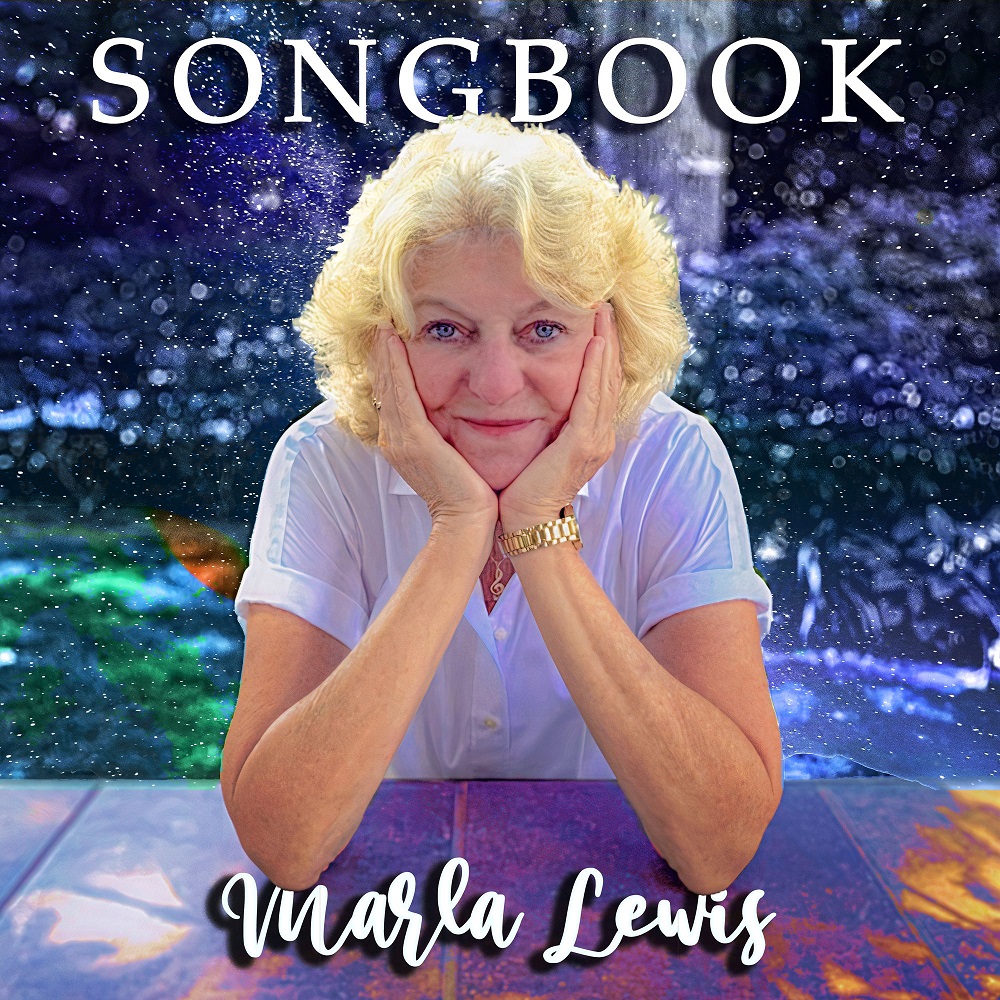Marla Lewis’ third album release Songbook is far removed from her past as a performer of children’s songs. Lewis has carved out a sturdy reputation as one of the music world’s foremost songwriters in that area with work for youngsters that’s simultaneously fun and intellectually rewarding. Her many years as an educator primed her for such achievements but Songbook is an entirely different matter.
The album leans heavily on jazz with occasional nods towards ancillary styles such as blues. Lyrical guitar and an entrancing vocal melody are the chief strengths of the opener “Blue Horizon”. It sets a moderate pace for the first song, often artists will choose a faster tempo for their lead-off number, but this is ideal. Lewis’ voice is ideal, as well, for the album’s songwriting. Her voice has subtle limitations, but the material and production accentuate her strengths.
“That’s All I Want” has several moving parts working in sympathy with one another. Woodwind instrumentation pairs well with crystalline piano runs and resonant bass fills with Lewis’ vocal woven into the arrangement. Kudos to the album’s production values. Many vocals unintentionally sound pasted onto their songs but listeners experience none of that on Songbook. The tracks included on this release are well-rounded and fully realized.
“My Lucky Stars” sustains the same warm and affectionate spirit. Woodwind sounds once again make their presence though they achieve greater prominence here than the preceding cut and Lewis ramps up the pace. Relationships gone wrong make their presence felt during the song “Kill the Lights” though Lewis wisely avoids any heavy-handed or despairing lyrics. She keeps things thankfully light, even at this downbeat moment, and the gently dismissive tone of the song isn’t without humor or genuine pathos. It’s a nicely executed number and one of the album’s longer performances.
She slows the tempo down again with “Your Secret’s Safe with Me”. Her singing and lyrics alike show a complete understanding of the genre though some may want more daring. It isn’t what this music is about, however. The lack of edginess throughout her music is one of the qualities that gives it an across the board inviting personality. Take that away and it’s far less accessible. There are a handful of potent guitar solos scattered throughout the album and this song features one of its best.
A dollop of harmony vocals helps “Better Late Than Never” stand apart from the pack but the breezy pace does as well. Lewis never allows compositions to run away from her, however, and the singing never feels rushed. “April Fool’s Rag” is another brisk cut with ample guitar but the steady sense of taste pervading over the release continues here. It has a different effect, in the end, than the preceding songs, but fits in with the other songs. Marla Lewis’ Songbook is one of the most satisfying examples of jazz songcraft released in recent history. It’s her first effort in this vein, but she’s already sounds like an experienced hand recording albums such as this. It bodes well for the future.
Chadwick Easton
The music of Marla Lewis has been heard all over the world in partnership with the radio plugging services offered by Musik and Film Radio Promotions Division. Learn more https://musikandfilm.com

